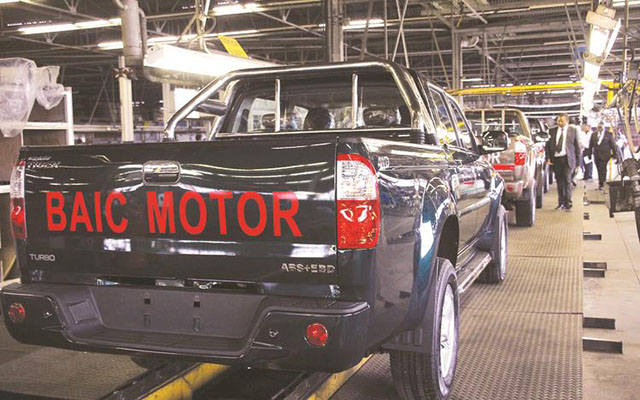Editorial Comment: Market must back local motor industry

Over the years, Zimbabwean businesses and individuals have been spending millions of dollars in foreign currency importing utility single and double cab trucks mainly from South Africa, Japan and the United Kingdom.
Some of the trucks gobbled a fortune for businesses, but were not value for money. They did not perform to expectations as they were not designed for local terrain and weather.
This, however, may be a thing of the past as Willowvale Motor Industries (WMI), which had been shut for the last five years, officially resumed operations this week following a joint venture with a Chinese firm to assemble a new range of pick-up trucks from semi-knocked down kits.
The firm previously specialised in Madza models.
As the country celebrates the fulfilment of deals President Mugabe penned with his Chinese counterpart President Xi Jinping in August 2014, expectations are high that more than 5 000 jobs will be created, and millions earned in taxes.
The more than 3 000 vehicles to be manufactured in three years, if not taken by the local market, will find themselves in regional markets, bringing in foreign currency.
We reported in our Monday issue that the new deal is a product of Beiqi Zimbabwe, a joint venture between China’s fifth largest car manufacturer, the Beijing Automobile International Corporation (BAIC), WMI and Astol Motors.
The truck will be called BAIC Great Tiger.
From the deal with BAIC, total sales volumes, we reported, are expected to be about 490 units this year, before rising to 940 units in 2018.
The new firm complements Quest Motors in Mutare which has been manufacturing different brands of trucks under a deal with another Chinese company.
However, inasmuch as the country celebrates the comeback of WMI, the company deserves everyone’s support.
The State Procurement Board (SPB) should ensure that no Government departments and parastatals will be allowed to import utility trucks for operations, but they must all buy from Beiqi Zimbabwe and Quest Motors in line with Cabinet Circular number 16 of 2011 which directed all line ministries, parastatals and public institutions to procure 80 percent of their vehicle requirements from local assemblers .
No such applications for foreign currency should be allowed by the Central Bank and Finance and Economic Development Ministry should make sure that all loopholes are closed.
Stiff penalties, we propose, should be imposed on heads of Government departments and parastatals who violate the standing Government regulation or law.
Our legislators should also lead by example by acquiring locally-assembled vehicles and help convince ordinary members of the public to follow suit.
Generally, local companies have been accused of not availing favourable terms to consumers, resulting in many preferring foreign brands.
To change that negative perception, it is not the duty of Government alone, but the companies too, to come up with favourable conditions that will result in local private companies settling for locally assembled brands.
The companies should come up with schemes that help struggling private companies acquire the vehicles under reasonable terms.
Zimbabweans, mainly ordinary workers and farmers had dreams of owning new cars fading away and it is our hope that the coming on board of Beiqi Zimbabwe should rekindle that hope.
However, it is up to the companies to reach out to the people and businesses with favourable terms.







Comments